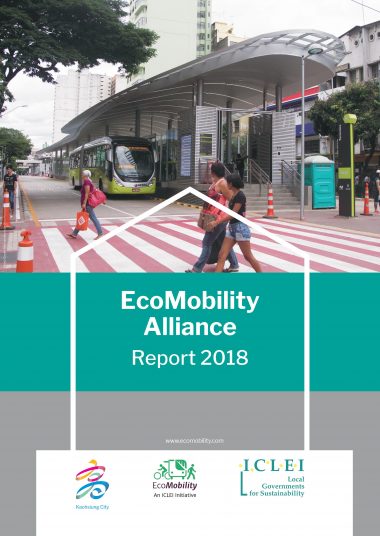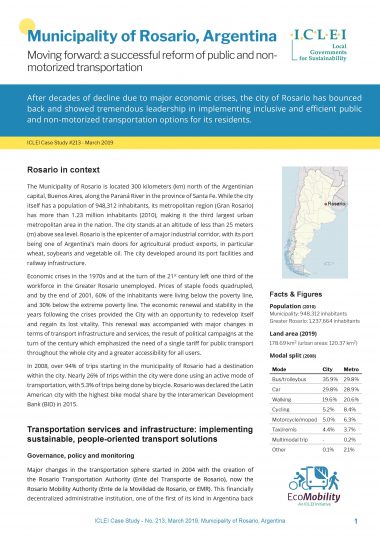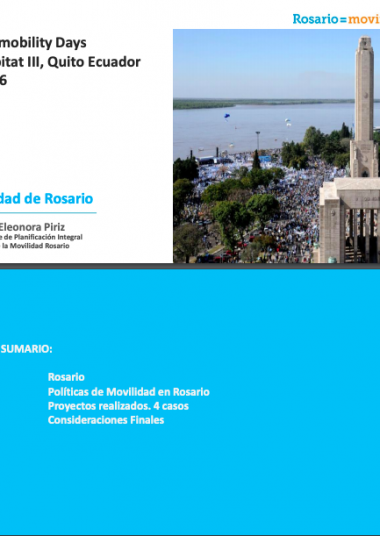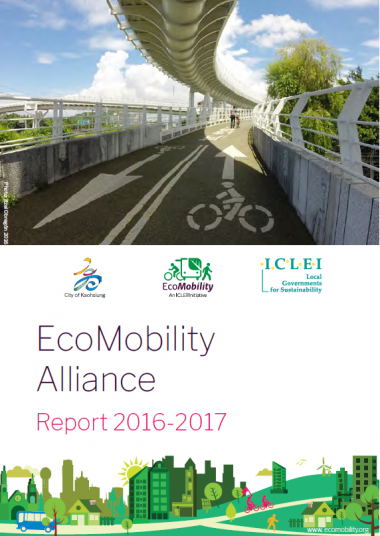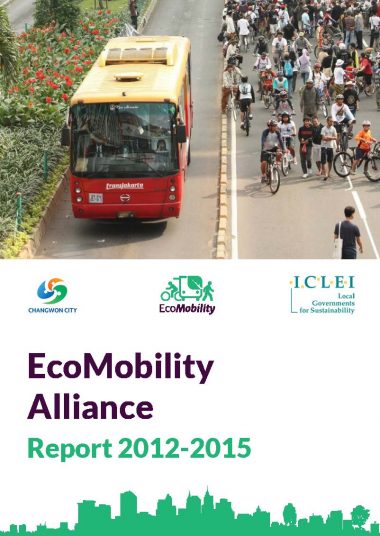Rosario is the third most populous city in Argentina, located about 300km northwest of the capital, Buenos Aires. The city is known for its dedication to improving the mobility system. Rosario published the Metropolitan Rosario Strategic Plan in 2008 which includes plans for modernizing transport and logistics infrastructure, advancing sustainable mobility within the metropolitan region, increasing rail transportation and enhancing participatory planning and management. Following this, the Mobility Integrated Plan (Integral de Movilidad, or PIM) was published as a result of a participatory process including residents, institutions, and local and international experts. This process led to the signature of the Mobility Pact 2010 (Pacto de la Movilidad), which frames its mobility strategy around three pillars: improve mass public transport, develop active mobility and deter individual motorized transport. Since 2018, the municipality inventories GHG emissions generated by different sectors and activities within the city.
A key highlight of the PIM is public transportation. In the past years, various improvements and reforms were undertaken including, amongst others:
- Construction of a BRT system covering 10km •Development of 63 lines of public transport including buses, trolley buses, and trams;
- Allocation of 25km of exclusive bus lanes;
- Creation of a Mobility Monitoring Center to monitor traffic flows, occupancy lanes, parking areas, traffic lights and compliance with routes and schedules;
- Establishment of a dynamic information system to help commuters with mobility planning;
- Commencement of a the public bike sharing system with 280 bicycles and 18 stations.
The municipality is about to start an extensive reform and standardization of its public transportation system, with plans to combine the current 63 lines into 40 new lines in the second half of 2019 to improve the routes and bus frequency and increase accessibility and ridership. The current bus fleet will be expanded to improve service frequency and quality. In addition, the city is studying the feasibility of implementing a potential tramway system, called the Tranvía Metropolitano de Rosario.
